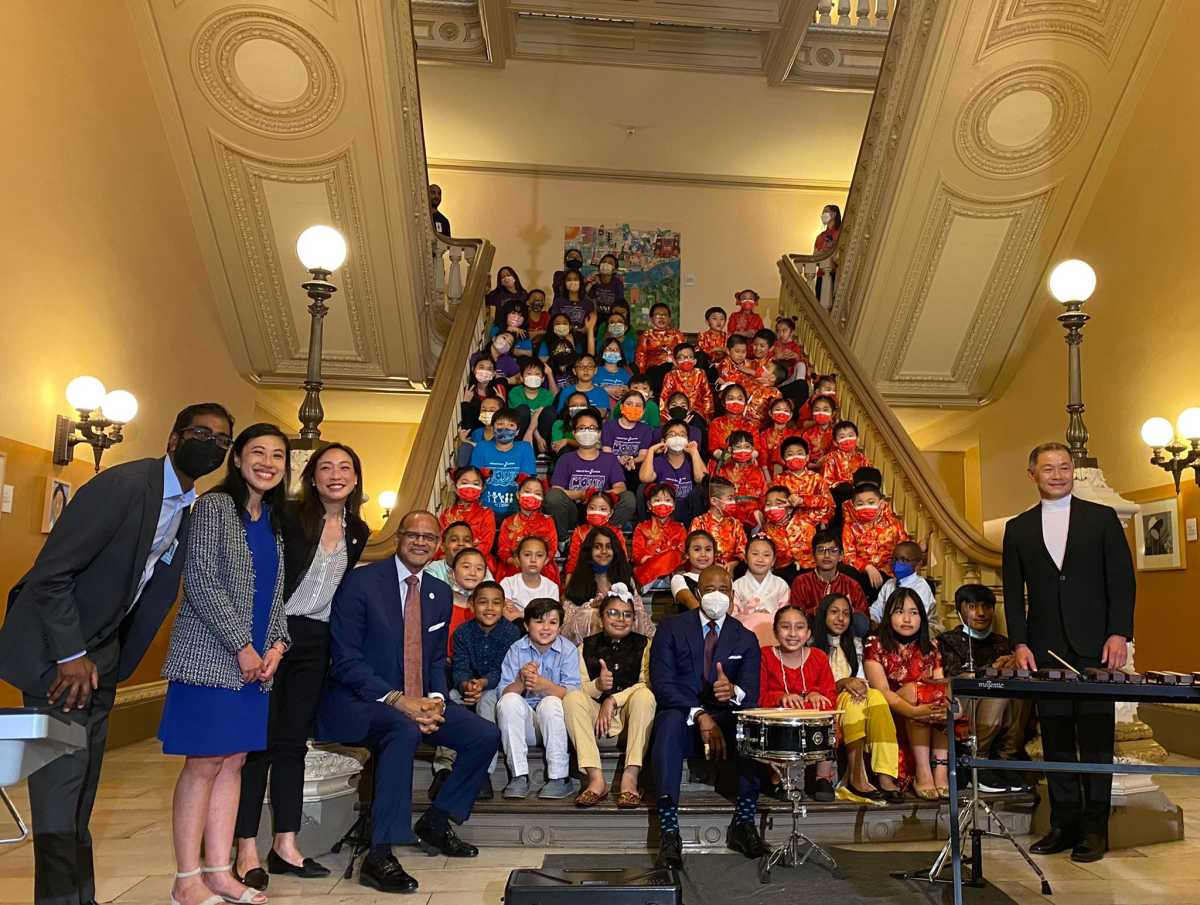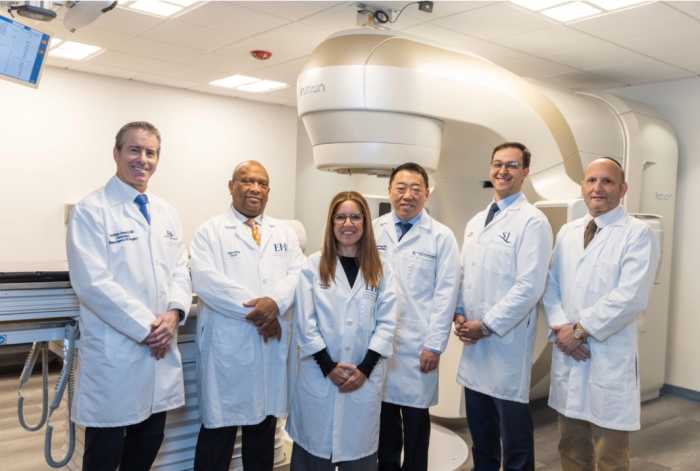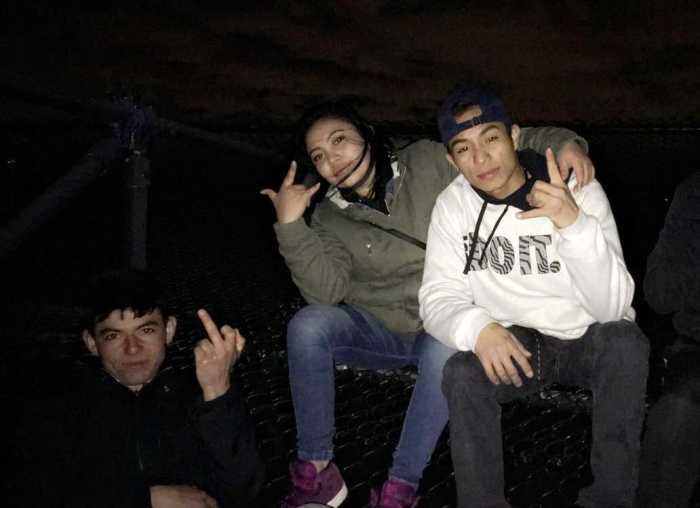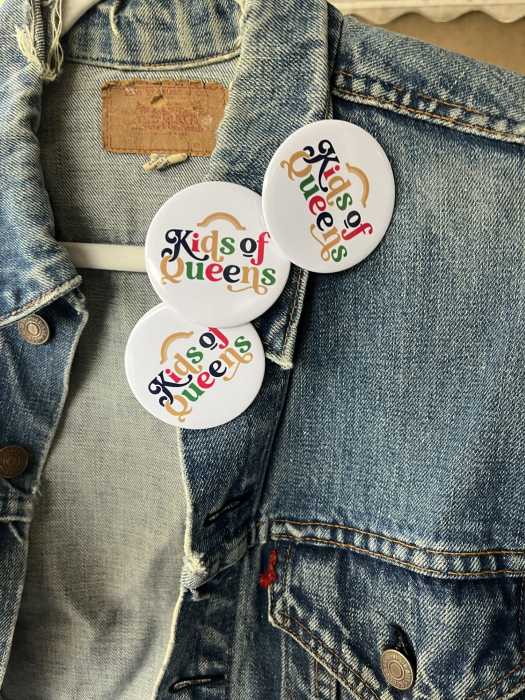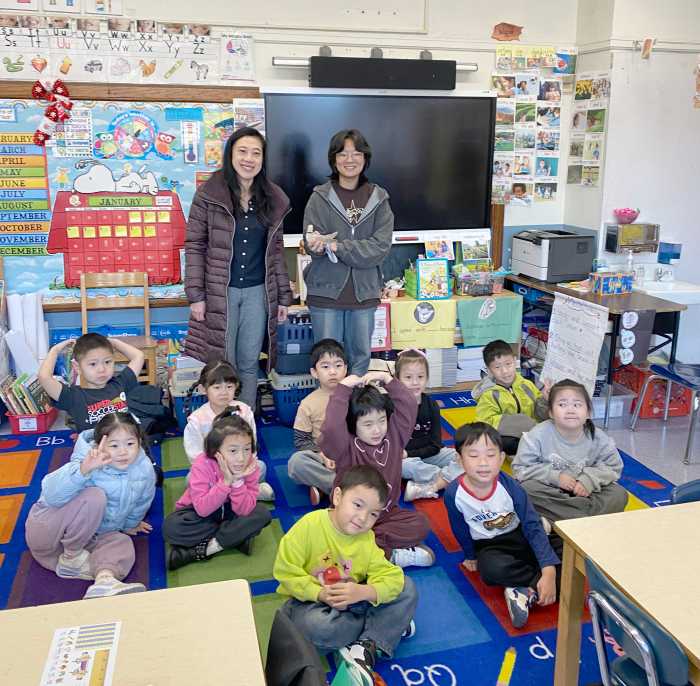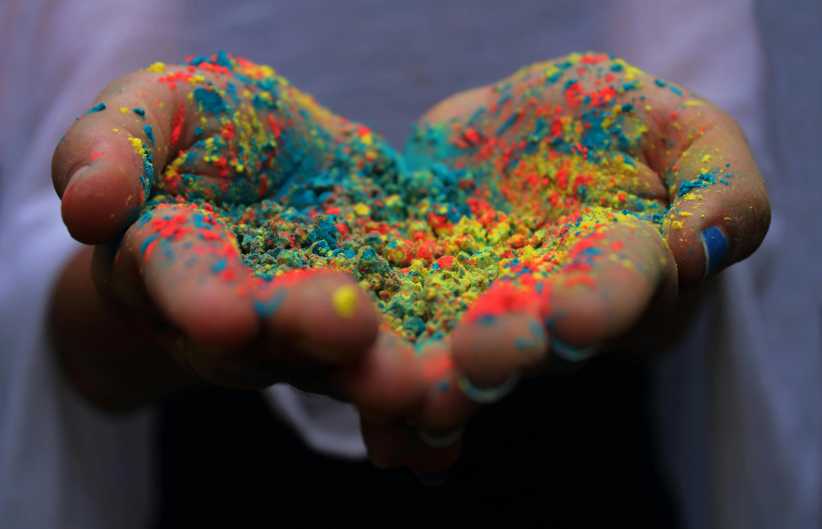Queens lawmakers joined Mayor Eric Adams and NYC Schools Chancellor David Banks at Tweed Courthouse in Manhattan on Thursday, May 26, to announce a new pilot program that will teach New York City public school students about the experiences and voices of the Asian American and Pacific Islander (AAPI) community.
The curriculum, called “Hidden Voices: Asian American and Pacific Islanders in the United States,” is the third phase of the Hidden Voices Project, a companion to the city Department of Education’s “Passport to Social Studies” curriculum.
The Hidden Voices project was initiated to help New York City’s students learn about and honor the innumerable people, often “hidden” from the traditional historical record, who have shaped and continue to shape our history and identity. Hidden Voices allows students to find their own voice as they become analysts of the past and to make connections between the past and the present.
As New York City is home to over a million AAPI residents, Adams said it’s only fitting to announce a new AAPI curriculum in public schools that truly “reflect the full picture of AAPI history in the United States.”
“Now, every New York City public school student will learn about the history, culture and contributions of Asian American and Pacific Islanders in this nation and understand that everyone’s stories deserve to be heard,” Adams said. “I want to thank Senator Liu and so many others who have fought for so long to make this curriculum a reality for all.”
Banks thanked their partners and stakeholders for their help in making the program a reality, saying they’re grateful for their “steadfast dedication” to students.
“I’m so proud to announce this exciting new curriculum. It is essential that our classrooms and the lessons we teach our young ones reflect the incredible diversity of the great city of New York,” Banks said.
Vivian Louie, professor of Urban Policy & Planning at Hunter College and a lead scholar on the Hidden Voices project, said she is honored to work with the DOE and an amazing team of scholars on the pioneering project to highlight AAPI history, culture and contributions.
“This is a history that we should all know, along with the experiences of so many, whose histories have rarely been told. This is the story of America,” said Louie, who is the director of the Asian American Studies Program & Center at Hunter College.
The initial Asian American and Pacific Islanders in the United States guide will include profiles of individuals, “Portraits of an Era,” and pedagogical guidance to support teachers to integrate these resources within the themes and narratives taught in New York City.
With the guide as a foundation, the Department of Social Studies and other content teams from the office of Curriculum and Instruction will develop multidisciplinary lessons for each grade level to amplify student engagement and highlight AAPI history, culture and contributions.
To support instruction and complement the curriculum, the DOE will purchase and make available culturally diverse AAPI trade books. Once developed, the curriculum will be shared with all schools and supported through a comprehensive professional learning plan to bridge information gaps and ensure the effective integration and implementation of the curriculum. Professional learning will help teachers support students in the exploration of their identity, provide richer learning experiences and deepen all students’ appreciation for the contributions of AAPI communities.
The curriculum, Asian American and Pacific Islanders in the United States, will be piloted through draft social studies and literacy mini units for all grade bands beginning in fall 2022. A more robust multidisciplinary curriculum, which will incorporate teacher feedback from the pilot, will be delivered to schools in the spring of 2024. This is part of the previously announced Universal Mosaic Curriculum, which is providing culturally responsive titles and classroom support materials to schools, as well as professional development opportunities for teachers and staff.
This curriculum is being developed in partnership with leading scholars and stakeholders from a variety of institutions and organizations, including The Asian American Education Project, the Coalition for Asian American Children and Families, New York Historical Society, Columbia University, Hunter College and the Yuri Education Project.
After advocating long and hard for an AAPI curriculum in New York City public schools, Queens lawmakers lauded the DOE, Adams and Banks for implementing the new program.
Liu, who is the chairperson of the Senate Committee on NYC Education, said the city’s commitment to an AAPI curriculum is a significant milestone that should serve as a model to be replicated statewide.
“Kudos to the chancellor for recognizing that the best way to stop the onslaught of anti-Asian hate that has continued unabated over the past several years is through education in our classrooms,” Liu said. “This is an important first step, and I will continue working with all stakeholders to prioritize the passage of S6359A in Albany to teach Asian American history and civic impact statewide.”
After leading efforts on the federal level to promote the teaching of Asian Pacific American history in history and civics grants programs administered by the U.S. Department of Education, Congresswoman Grace Meng noted that for generations, it has been poorly represented in the nation’s K-12 education system and social studies textbooks.
“Asian Pacific American history is American history, and when we fail to tell our children these stories, we lose a rich and nuanced perspective on our American story,” Meng said. “Our school curriculums should be inclusive of all the diverse stories that our nation has to offer. Teaching future generations about our past, and that Asian Americans and Pacific Islanders helped make America the greatest country on the planet, will help break down the stereotypes and negative perceptions that sadly still exist about Asian Americans and Pacific Islanders.”
Meanwhile, City Council members Sandra Ung, Linda Lee, Julie Won and Shekar Krishnan, who introduced a resolution last week calling on the New York State Legislature to pass a bill to teach students about the historical contributions of Asian Americans, commended the city’s commitment to centering AAPI New Yorkers’ experiences in the classroom.
Lee, who serves as vice chair of the Council’s Black, Latino and Asian Caucus, said having AAPI history included in the DOE’s curriculum through “Hidden Voices” will “educate others about Asian culture and instill pride in AAPI children learning across the city.”
“AAPI history is American history, and I am immensely proud that our heritage will be recognized in our schools thanks to Chancellor Banks’ leadership,” Lee said.
Ung said she is “pleased to learn that the Department of Education is leading the way in this effort, and has pledged to begin teaching AAPI history and culture and sharing our stories in the city’s classrooms.”
Krishnan said, “South Asian public school children, like my own, will finally be able to see themselves reflected in their textbooks.”
Won said she looks forward to the growth of the program and permanent implementation in the city.
“AAPI Americans have been for far too long invisibilized and stripped of our individual cultures and languages, and treated as strangers in our own homes,” Won said. “We must address the ignorance that has been deliberately fostered in our country to facilitate the disempowerment of AAPI Americans through education to show all New Yorkers that we are a part of this city and have been for much of its history.”
According to Rajkumar, students need to be fully versed in the histories and contributions of everyone who makes up the “gorgeous mosaic” of New York City.
“The new AAPI curriculum will cut through misconceptions and misinformation about Asian American history and shine a light on this community’s American story. With the development of this inclusive, factual curriculum, Mayor Eric Adams demonstrates his outstanding commitment to the comprehensive education of each and every student. As the first South Asian-American woman elected to New York state office, I will proudly offer any help or resources needed to ensure the accuracy and success of this historic initiative,” Rajkumar said.
Queens Borough President Donovan Richards applauded the DOE and all community partners for the important work, saying it will “pay dividends for generations of children to come.”
“AAPI history is Queens history, New York City history and American history. Establishing a curriculum centering the experiences of our diverse AAPI communities is critical in our mission to ensure our children receive the most well-rounded and informed education possible,” Richards said.

